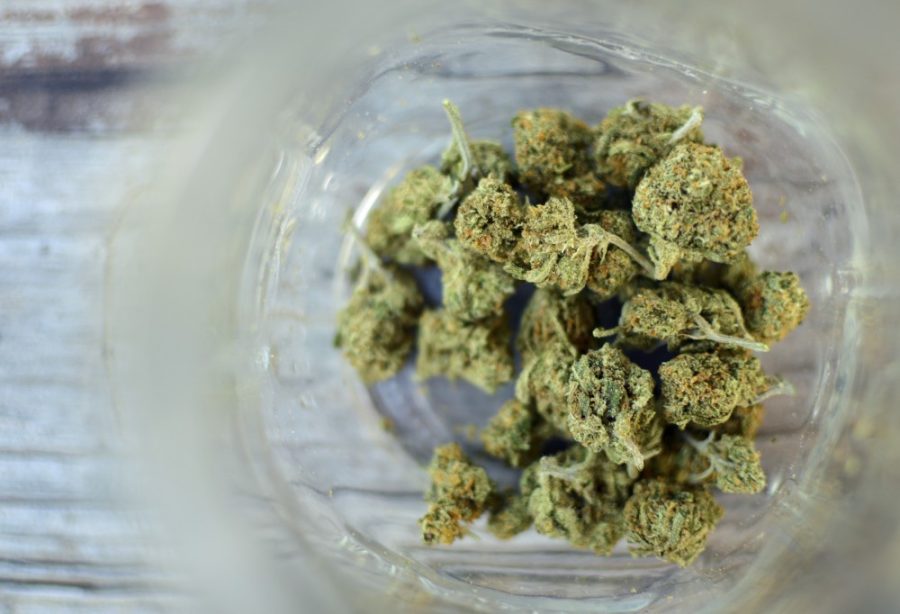Arizona residents can vote to legalize recreational marijuana with Proposition 205 on Nov. 8. If passed, Proposition 205 would decriminalize marijuana, regulating the substance like alcohol, legal for individuals over 21.
Carlos Alfaro, deputy campaign manager for the Yes on 205 Campaign, supports this decriminalization.
“I support Prop. 205 because I believe in personal liberty,” Alfaro said. “I think it’s unnecessary and ridiculous that we’re arresting 15,000 adults in Arizona for simple marijuana possession. Prop. 205 is the best way to help that because not only would it be legalizing it, it would be ending prohibition and [it would be] giving money to our public schools by taxing marijuana.”
Proposition 205 would eliminate the vast majority of possession arrests in Arizona, according to Alfaro. The proposition would levy a 15 percent tax on all sales, which would be used to fund public health and education.
RELATED: Community Chatter: Should recreational marijuana be legalized in Arizona?
The Arizona Joint Legislative Budget Committee conducted a study that estimated Proposition 205 could bring in $124 million annually in taxes and fees. Of the taxes raised, more than $55 million would go to schools.
The regulation, sales and taxes would be set by a new Department of Marijuana Licenses and Control, which would allow the government to get funding from something individuals currently do through illegal means.
Kestrel Gorlick, a computer science and mathematics freshman, said people will get marijuana if they want it, legal or not.
“However, the fact [is] that somebody with three grams of weed on them gets the same jail time as someone who physically assaults somebody,” Gorlick said. “Any kind of leeway cutting out that amount of crazy jail time for anybody is a really good step in the right direction. More than anything, it’s just that the events that led to it being criminalized in the first place are so shady and wrong it needs to be fixed.”
Marijuana use is at an all-time high, according to a University of Michigan study via USA TODAY. It stated that one in every 17 college students use marijuana daily or near daily, meaning 20 or more times a month.
The legal risks of smoking marijuana are high in Arizona, where only medical marijuana is legal. Possession of less than two pounds is punishable by four months to two years in prison and a $1,000 fine.
“These laws are not working, and they are making criminals out of our communities and it’s time to stop it,” Alfaro said.
Those opposed to Proposition 205 have a slew of other issues with it.
“The biggest reason why I oppose it is because, first of all, if it needs to be amended, it’s extremely difficult for the legislature to touch it,” said senior Ashlee Bierworth, double major in political science and law.
The proposition would become a statute, meaning changes could occur in the Arizona legislature or by another ballot initiative.
“Another reason is the lack of authority in the law enforcement to regulate driving under the influence of marijuana,” Bierworth said. “The prop doesn’t specify a legal limit of marijuana in your system.”
Driving under the influence is illegal with or without the passing of Proposition 205. However, there is no current way to quickly and accurately test someone for amounts of THC, or tetrahydrocannabinol, the chemical responsible for most of marijuana’s psychological effects.
“It makes it difficult for people to be charged as driving under the influence—even if they are impaired under marijuana—under this law,” Bierworth said.
Both sides, however, have groups with vested interests funding them.
“The funders behind Prop. 205 are based out of [Washington] D.C.,” said UA alumna Laura Ciscomani, who is a volunteer with Arizonans for Responsible Drug Policy. “Ninety-six percent of funding for Prop. 205 comes from the Marijuana Policy Project, which is one of two major marijuana industry lobbying groups.”
RELATED: UAPD Campus Safety report shows increase in stalking and drug violations
Alcohol and other pharmaceutical companies are big backers of the opposite side. The largest contributions include a recent $1 million contribution from Discount Tire and $500,000 from an opioid manufacturer in Chandler called Insys Therapeutics Inc.
“The alcohol industry and the opioid manufacturers in Arizona have given them hundreds of thousands of dollars to run a no campaign because they see it as competition to their product,” Alfaro said. “[There are] big lobbies against marijuana legalization because it hurts their bottom line.”
Registered voters can help decide if the grass is greener come November.
Follow Rocky Baier on Twitter.









